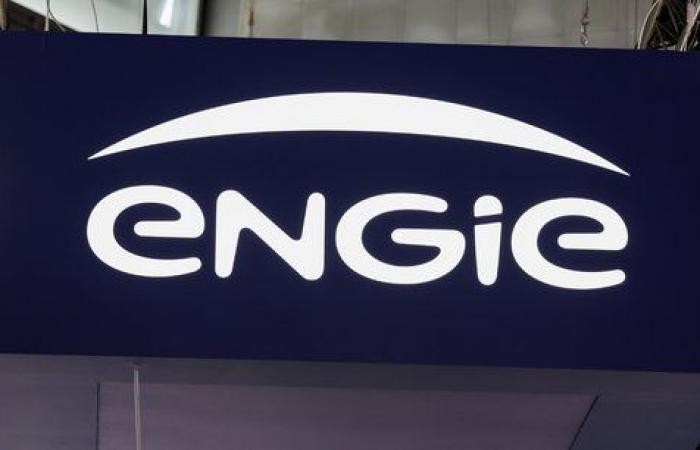[Mise à jour] Article initially published at 08:23 on 06/26/2024, updated at 18:22
Reclaim Finance, the NGO which is used to analyzing the climate strategy of financial players, is broadening its scope of action. The association has, in fact, joined the coalition Beyond Fossil Fuels to scrutinize the transition plans of five major European energy companies: the Czech EPH, the Norwegian Statkraft, the Italian Enel, the Spanish Iberdrola and the French Engie. Main message of the report published this Wednesday, June 26: none of them has made a commitment to gradually stop producing electricity from fossil gas in Europe, and more broadly in OECD countries , by 2035. This is what the International Energy Agency (IEA) recommends in order to achieve carbon neutrality in 2050.
« Currently, banks, investors and rating agencies do not have effective methods to consistently assess power producers’ transition plans. This makes it difficult for them to make meaningful comparisons and ensure that their support only goes to companies whose plans are consistent with climate science », Explains Reclaim Finance in a press release to justify its approach. This report is therefore the first edition of a series of annual publications. Ultimately, the NGO plans to extend this analysis to other electricity producers.
If Engie is not presented as the last in class, like the Czech EPH, “ anchored in a strategy based on fossil assets “, it does not appear, either, among the best students, where we find Iberdrola and Statkraft, ” even if they are not perfect », Specifies Pierre-Alain Sebrecht, campaign manager at Reclaim Finance.
Between 1 and 2 billion euros in new thermal power plants
« Engie invests heavily in solar, wind, storage and networks. So there are real efforts. The problem is that he continues to invest in fossil fuels. Which compromises all the gains that we can hope to obtain from renewable energies “, he summarizes.
In detail, the group, led by Catherine MacGregor, is aiming for carbon neutrality by 2045 across its three scopes and thus plans to reduce its emissions by at least 90% between 2017 and 2045. With this in mind, it intends almost double its renewable capacities from 42 GW in 2023 to 80 GW in 2030, mainly by developing new solar and wind capacities. Which should then represent 58% of its electricity production mix. Engie also plans to deploy 10 GW of battery storage over the same period. Investments dedicated to low-carbon solutions should therefore represent 22 to 25 billion euros over the period 2023-2025, then follow a similar annual rate in 2026.
But at the same time, according to the report, which is based on information provided directly by the energy company, Engie plans to invest two billion euros in new gas infrastructure and between one and two billion euros in new thermal power plants. by 2026. Engie is the only company out of the five to have communicated such wide ranges to us », notes Pierre Alain Sebrecht, who regrets “a lack of clarity. »
A ratio not up to par
Over the period 2023-2025, the study shows that “ for every euro that Engie spends on fossil fuels, it will spend up to 4.3 euros on sustainable energy solutions (wind, solar, storage and networks) “. Now this ratio is ” well below the 6:1 ratio recommended by the IEA for financial actors », Specifies the document.
« Today, there is no strict recommendation from the IEA for electricity producers, recognizes the campaigner. However, given that these producers do not invest in extraction activities as banks do, by financing players like TotalEnergies for example, we consider that they must display a ratio higher than that applied to the financial sector. If they are below, as is the case for Engie and EPH, it is because they are bad », says Pierre Alain Sebrecht.
Beyond the amounts invested, the report is concerned about projects based on the use of hydrogen, biomethane and carbon storage technologies. “ Engie’s argument is based on the fact that these new thermal power plants will eventually be able to operate from green gas, such as hydrogen and biogas. But these are technologies which, for the moment, are not mature and which will potentially not be available on large scales. », Explains the campaign manager.
Fear about the level of maturity of technologies
Fears which may appear justified given the slower than expected development of carbon-free hydrogen production projects. Catherine MacGregor also recognized last March that “the decarbonization of the molecule [de gaz, ndlr]» would take “more time. »
Under these conditions, Reclaim Finance fears that the energy company will nevertheless continue to exploit its gas power plants to the maximum in order to make its investments profitable. The group defends itself by presenting these assets as flexibility tools, essential for the stability of the network in the perspective of increasing penetration of intermittent renewable energies. In other words, these power plants would not be intended to operate all year round, but only occasionally during peak consumption. The goal is to promote and remunerate these controllable thermal assets for their presence and the services they provide to the electrical system, and not for their production volume.






